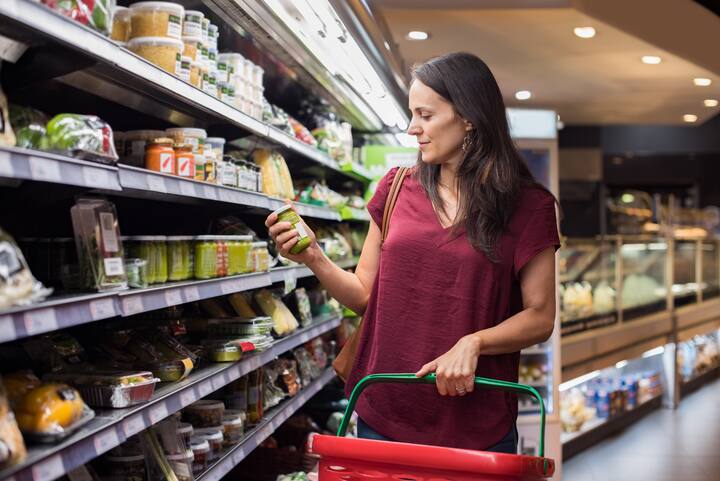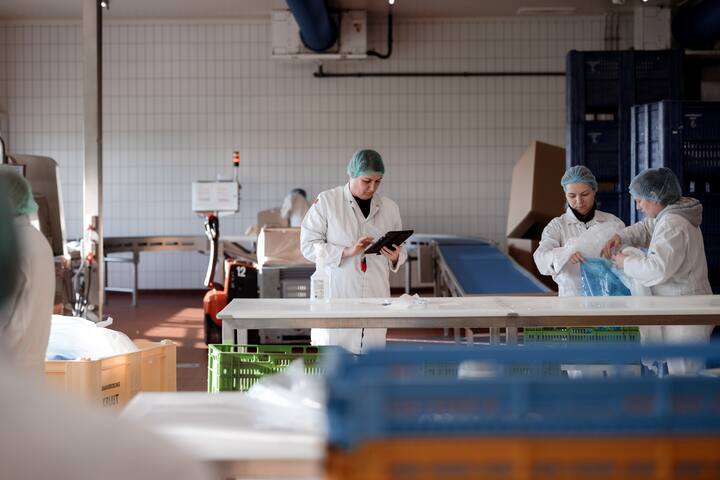
What is a recall and how do you deal with it professionally?
January 31, 2022
What is a recall and how do you deal with it professionally?
Food producers are responsible for the products they place on the market. If you place a food product on the market that is unsafe (e.g. a product with an incorrect label or an excessive level of unauthorised substances), you must take action. This may involve a product recall. What does a recall mean and how do you deal with it professionally?
What is a recall?
A recall is a product withdrawal. If your product may be unsafe, you must withdraw it from the market to prevent consumers from becoming ill or experiencing discomfort. For example, the products must be withdrawn from supermarkets. If the products may already have been purchased by consumers, they must be informed about the potentially unsafe product. This is done through announcements in the media and via the shops. A recall not only leads to high costs, but also potentially damages the image of your product and company. The trust of your customers and consumers may be damaged. Therefore, when it comes to recalls, prevention is always better than cure.
What are your responsibilities?
Article 19 of the General Food Regulation (ALV) sets out the responsibilities of food producers for placing safe food on the market. Among other things, it states that a food business operator must initiate procedures to withdraw food that does not comply with food safety requirements from the market. This may concern a product that has been imported, produced, processed, manufactured or distributed. If the product has already reached the consumer, you must (if necessary) recall the product already delivered to the consumer.
Withdrawal from the market or a recall?
In practice, the withdrawal from the market and recall of products overlap. Every batch that you have to recall from consumers must also be withdrawn from the market. The reverse is not always the case. Withdrawal from the market often takes place before the product is sold to consumers. The main difference lies in the measures that must be taken to inform consumers about a defect. In the event of a recall, consumers must return or destroy the product in question. The General Food Regulation distinguishes between the measures that the manufacturer must take and those that distributors and retailers must take who have no influence on the packaging, labelling, safety and integrity of the food. Distributors and retailers must, among other things, pass on relevant information to trace a food product.
When to report to the NVWA?
In the Netherlands, businesses that place potentially unsafe food on the market or have it in storage must report this to the NVWA (Netherlands Food and Consumer Product Safety Authority). Similar rules apply in other EU countries. Failure to report is considered a violation by the NVWA.
After the report, the NVWA will work with the company to assess the risk and determine what action needs to be taken. Reports can be made via the NVWA website. The NVWA may also make a product recall mandatory. Failure to comply immediately with a recall imposed by the NVWA can result in heavy fines.
When is a product unsafe?
The NVWA clarifies what constitutes an unsafe food product. A food product is a substance or product, processed or unprocessed, that is expected to be consumed by humans.
A food product is unsafe if, for example:
it contains foreign matter such as metal particles, glass splinters or plastic,
it is spoiled,
it does not meet the (legal) requirements because it contains too much of a chemical substance (e.g. dioxin) or (micro)biological contamination (e.g. Salmonella bacteria).
The company is primarily responsible for determining whether a deviation is harmful or unsuitable for consumers. If the safety limit is unclear, you must carry out a risk assessment together with the NVWA and decide whether measures are necessary.
How do you carry out a product recall?
If there is no other option and you have to proceed with a recall, the manufacturer must take various steps:
Collect information, such as traceability codes, production date, delivery date, etc.
Determine the scope
Identify the cause
Inform the NVWA
Inform employees, affected customers and suppliers
Inform the certifying body
Publish a public warning
Block products and coordinate the return of products
Investigate returned products
A recall team consisting of various experts carries out the recall. It is important that the recall is carried out quickly and accurately due to the food safety risks. But also to minimise damage. A recall can be very costly and cause damage to your image. It is therefore important for your brand's reputation that a recall is carried out professionally. Traceability is an important part of this. The more accurately you can determine which batch of raw materials has been used in which product, the more targeted you can be in carrying out a recall. This prevents the waste of “good” products and limits financial risks.
Know your responsibilities
It is very important for a food producer to know their responsibilities. Both recall procedures and other procedures relating to traceability must be in order. This allows you to take the right measures immediately if there are reasons why a product does not comply with food safety regulations or may be harmful to human health.
How to carry out a recall correctly or prevent one?
Do you need help with a recall or drawing up the right procedures? Or do you want to prevent having to carry out a recall? Then get in touch with us.
Author: Peter Zirkee Commercial Manager
More about Normec

Normec Foodcare
‘s-Hertogenbosch Netherlands